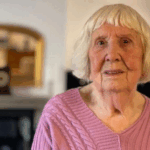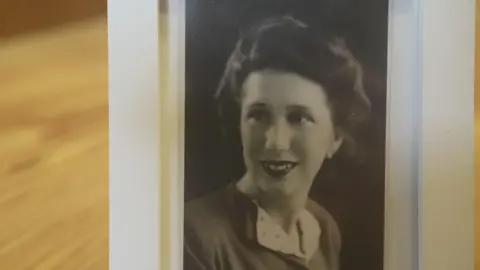
The oldest surviving victim of the Post Office Horizon IT scandal has said she can now “look to the future” after receiving her long-awaited settlement from one of the government’s compensation schemes.
“I can settle up my affairs. I can turn the heating up full blast, and that will be wonderful,” 92-year-old Betty Brown told the BBC.
Mrs Brown was forced out of her Post Office in County Durham in 2003 after she and her late husband spent more than £50,000 of their savings to cover shortfalls that did not exist.
Her settlement comes after it was confirmed that campaigner Sir Alan Bates had agreed to a multi-million-pound compensation figure from the Post Office.
“At last, after 26 years, they’ve recognised justice,” she said, adding: “pity they took so long.”
Her Post Office had been one of the most successful in the region but eventually she had to sell it at a loss.
Talking about what happened, she previously said it “absolutely destroyed my whole life”.
The Horizon IT system was responsible for more than 900 sub-postmasters being wrongfully prosecuted because of it providing incorrect information. Thousands more, like Betty, were forced to make up for the alleged losses at their branches across the UK.
The scandal has been described as one of the widest miscarriages of justice in the UK.
Mrs Brown was one of the original 555 victims who took part in the landmark group legal action led by Sir Alan Bates against the Post Office.
She said it was “fantastic” that Sir Alan had received his final settlement too, describing him as her “hero”.
“I think at long, long last, the government are starting to listen. Not only are they starting to listen, they’re beginning to act,” Mrs Brown said.
Both Betty and Sir Alan were part of the Group Litigation Order compensation scheme, and those claimants were offered the option of taking a fixed sum of £75,000 or pursuing their own settlement.

In December 2024, Betty was originally offered just under a third of what she’d claimed in compensation. That was gradually upped to 70% earlier this year, which she rejected. Her case was then escalated to an independent panel.
There were two main sticking points.
Firstly, the Post Office knocked 10% off the income she’d been making when she was running her branch, which had a big impact on the calculation for her future loss of earnings.
And then it downgraded her claim for psychological damages from severe to moderately severe, even though her medical report had concluded it was severe.
Betty took up the opportunity to address the panel, an experience she said felt like reliving the past.
“The emotions, the fear, the terror was all coming back,” she said.
The panel found in her favour.
By then, Betty had already dropped a couple of incidental claims for business costs because she didn’t have any paperwork, and the lack of evidence was being challenged by the government
She has now ended up with about 95% of what she originally claimed for, and Betty is happy with that.
The latest government figures up until the end of September, which don’t include Betty’s payout, show that of 492 eligible claimants, 385 have had their claims fully settled, with more than 100 people still waiting for their final payment.
Across all the government compensation schemes, £1.2bn has now been paid out to more than 9,100 victims.
“This is a redress scheme,” Betty stressed. “They’ve only given us back what they took from us. We haven’t had a penny in compensation.”
Over the last two years, that’s the message Betty has been putting across as she’s become one of the most formidable campaigners for justice for former sub-postmasters.
She has appeared on BBC Breakfast, Newsnight and taken government ministers to task.
Betty celebrated with tea and cake at her local church coffee morning. She got a round of applause and some hugs as she broke the news of her final payout.
Mrs Brown also made it clear that she was not finished.
“I don’t want to put my feet up,” she said. “I just want the other sub-postmasters to have what I have been given. That’s all I want – justice for every one of them.”



